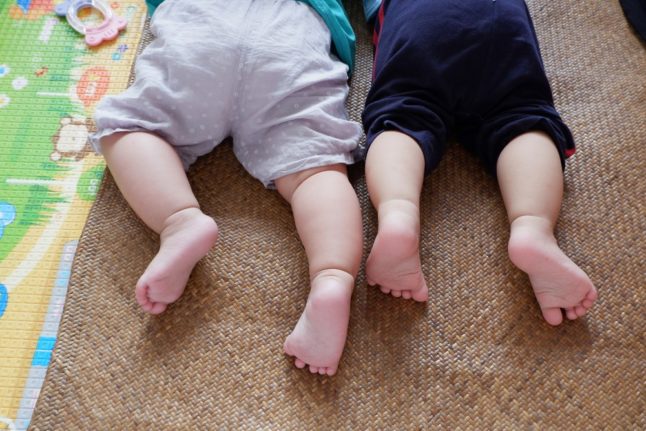The new rules take effect from May 1st, the Ministry of Employment said in a statement.
This means that twins born after this date will get an extra 26 weeks with their parents of parental leave covered by the state – 13 for each parent.
“It’s an extra big handful when there’s not just one, but two new infants in the family at the same time. We are now making sure there’s enough time to get things under control,” Employment Minister Ane Halsboe-Jørgensen said in the statement.
“Every year, parents to around 1,000 pairs of twins find themselves in a happy but also difficult situation. It has been an important priority for the government and other parties behind this agreement to give them better conditions,” she added.
READ ALSO: Have Denmark’s new parental leave rules changed mums’ and dads’ time off with babies?
The new rules were formed in a political agreement between the government and four opposition parties – the Socialist People’s Party (SF), Liberal Alliance, Social Liberals and Danish People’s Party – made as part of the 2023 budget.
The 26 weeks’ extra parental leave must be taken before the twins’ first birthdays. The rules apply to all parents who have two or more children at the same birth or adoption.
The leave cannot be transferred between parents and is therefore comparable to the “earmarked” parental leave that was introduced in a reform to the provisions in 2022.
READ ALSO: Denmark’s parental leave rules explained
The parental leave law which came into effect on August 2nd 2022 guarantees each parent 11 weeks of so-called “earmarked” leave with their newborn child. This means each parent gets 11 weeks of non-transferable parental leave after their child is born. One parent cannot transfer any of the ‘earmarked’ leave to the other, meaning if they do not use the full 11 weeks, they eventually lapse.
Denmark changed its parental leave rules in part to comply with an EU directive requiring member states earmark nine weeks of statutory parental leave for fathers.
The new rules for twins replace outgoing parental leave rules which gave additional leave to parents who had three or more children at the same birth.



 Please whitelist us to continue reading.
Please whitelist us to continue reading.
Member comments